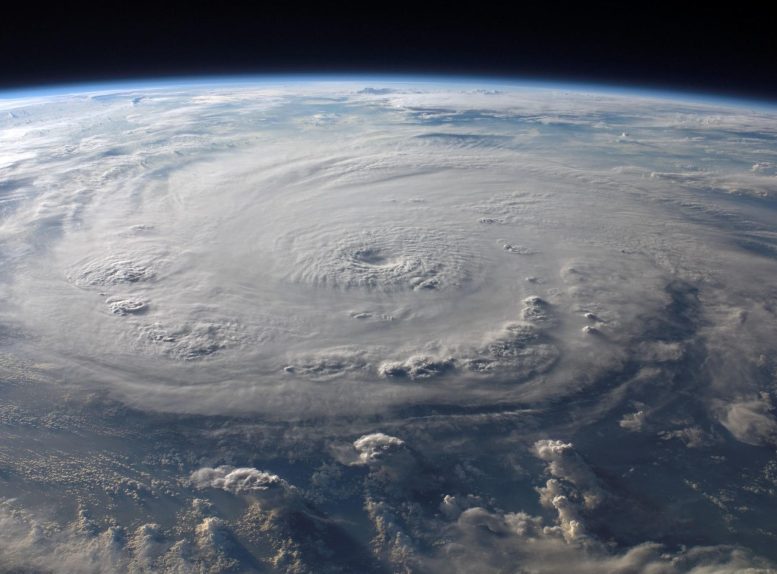
Known also as typhoons or hurricanes, tropical cyclones are among the most destructive weather phenomena.
Where does that energy come from?
Landfalling North Atlantic tropical cyclones (TCs) inflict significant economic damage to human civilization. Between 1900 and 2017, 197 North Atlantic TCs caused 206 landfalls in the continental United States, resulting in about US$2 trillion in damages. As natural weather disasters, TCs have huge destructive power proportional to their intensity.
However, why do TCs have such powerful destructive energy? Kerry Emanuel’s earlier research on TC intensity suggested the “heat engine” idea, which explained the intensity of a TC from the standpoint of the energy cycle and highlighted the fact that the energy originates from the warm ocean.
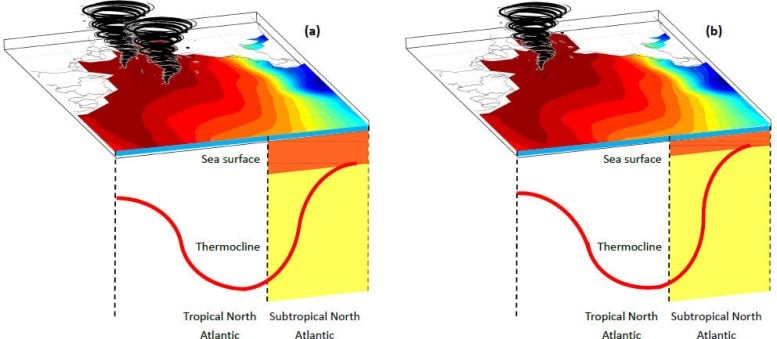
Schematic illustration of the oceanic thermal forcing of North Atlantic tropical cyclones. Credit: Zhenxi Zhang
Following this concept, Professor Zhenxi Zhang of China’s Inner Mongolia University of Technology and Professor Wen Zhou of China’s Fudan University investigated the spatial characteristics of the energy-driving North Atlantic TCs. Their findings were recently published in the journal Atmospheric and Oceanic Science Letters.
TC intensity is the kinetic energy of a TC, which essentially comes from the energy in ocean heat content because energy is conserved. Among all TCs, the peak intensities of strong TCs are the most related to the ocean heat content, especially that of the extratropical North Atlantic. Therefore, the ocean heat content in this ocean region is the limiting factor of strong TC peak intensity.
Moreover, coastal upwelling off northwest Africa and southern Europe can affect subsurface ocean temperatures in the extratropical North Atlantic. “Therefore, the peak intensity of strong TCs is also directly correlated with the water temperature in these two upwelling regions on an interdecadal timescale”, concludes Professor Zhou.
Reference: “Oceanic thermal forcing of North Atlantic tropical cyclones” by Zhenxi Zhang and Wen Zhou, 8 September 2022, Atmospheric and Oceanic Science Letters.
DOI: 10.1016/j.aosl.2022.100286

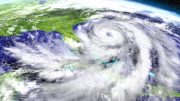


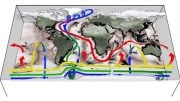


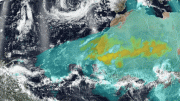
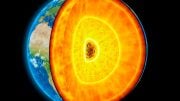
Be the first to comment on "Why Do Hurricanes Have Such Huge Destructive Energy?"